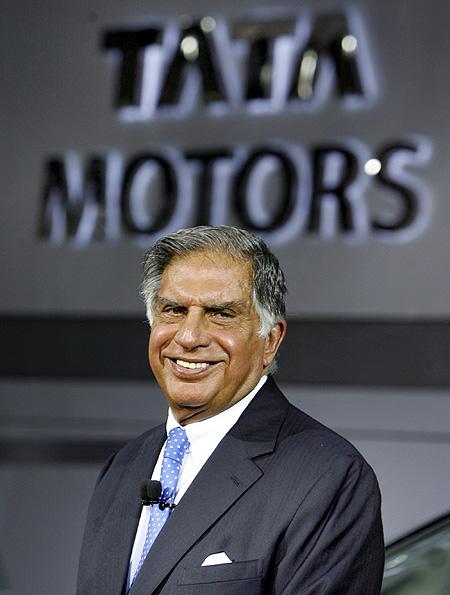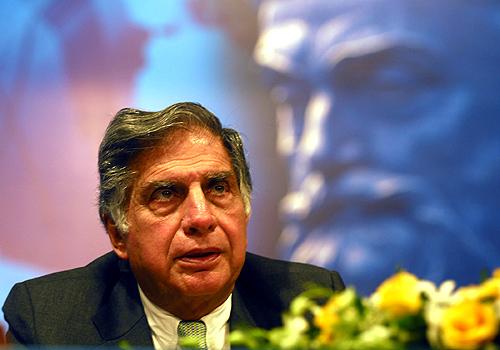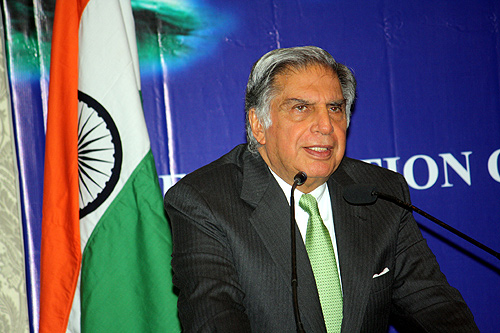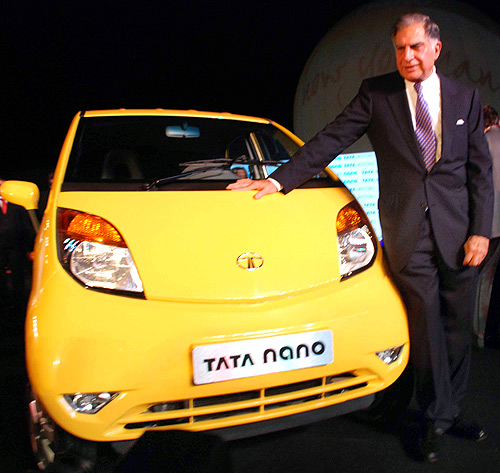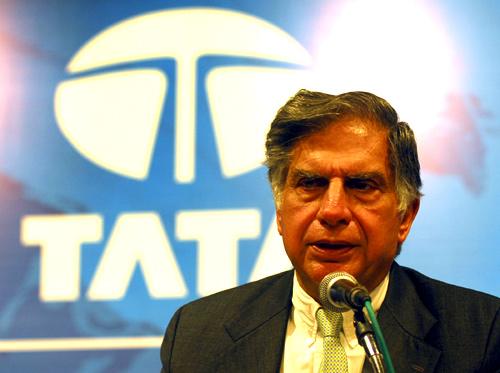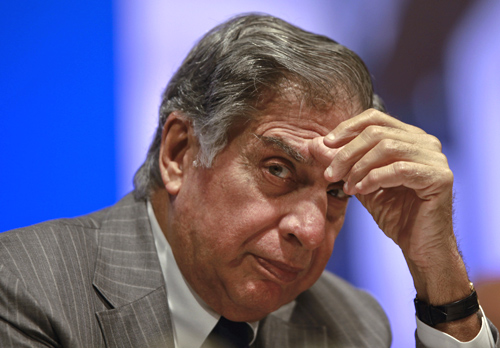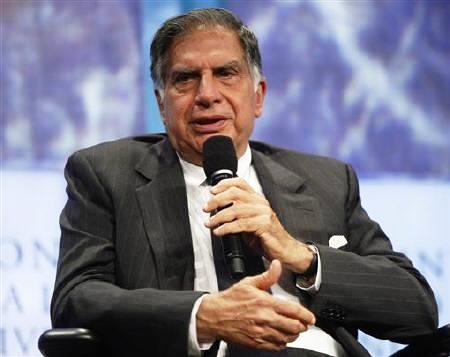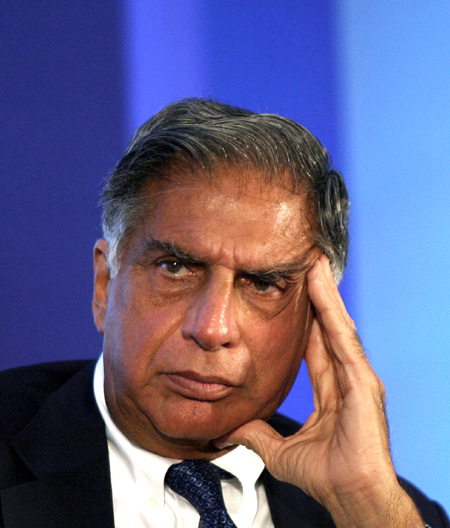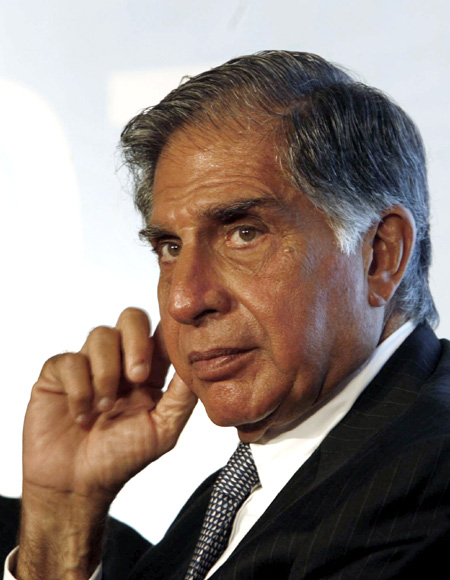 | « Back to article | Print this article |
Tough biz environment a major challenge: Tata
Ratan Tata, who has just stepped down as Tata group's head, has said that the biggest challenge for the $100 billion conglomerate's new Chairman Cyrus Mistry will be the country's business environment that is going to be tougher and more complex than the crisis of 1991.
"The big picture challenge is that the (business) environment is going to be tougher and more complex than it was in 1991.
Click NEXT to read further. . .
Tough biz environment a major challenge: Tata
"In 1991, there were less people aspiring to succeed in this newly opened economy. Today there are many," he said in an interview published by Time magazine.
Tata, who stepped down as head of the Tata group on December 28 after 21 years at its helm, was replying to a query about the biggest challenge for his successor.
Click NEXT to read further. . .
Tough biz environment a major challenge: Tata
Mistry has taken over from him as Chairman of Tata Sons, the holding company of salt-to-software conglomerate Tata group.
Asked whether corruption was eroding investor confidence in India, Tata said: "It's been a concern to many of us for some time", but it has been masked by the very high rate of
growth and prosperity of the country.
Click NEXT to read further. . .
Tough biz environment a major challenge: Tata
"It has led to a fair amount of crony capitalism and people like us have been concerned that it is not usually a level playing field as it should be," he said.
To queries about Tata group's involvement in the alleged irregularities in the telecom space and a lobbyist for Tatas being under surveillance, Tata said that the of investigative agencies had not only cleared the group, but also found it to be 'disadvantaged among all the telecom players'.
Click NEXT to read further. . .
Tough biz environment a major challenge: Tata
"Obviously, there were phone calls, which were absolutely innocuous, that were wiretapped."
"We did nothing wrong, did nothing illegal, so no, I wouldn't have done anything differently," Tata, who was with the Tata group for about 50 years, said in reply to a query whether he would have done anything differently.
Asked how he felt about stepping down as Chairman, Tata said: "I'm feeling very good. I'm looking forward to having time to do the things I want to do. And as far as I'm concerned, it's a relief."
Click NEXT to read further. . .
Tough biz environment a major challenge: Tata
He said he would have loved to have achieved a 'flatter organisation' than it had ended up being.
"These are issues of almost cultural pushback.
"We are a very hierarchical country. So to have a very flat organisation runs contrary to what the Indian wants to see.
"He wants to be better than the next guy," he said.
In reply to a query about the countries appearing robust to him, Tata said that he was quite bullish about the US and termed Africa as the real emerging giant.
Click NEXT to read further. . .
Tough biz environment a major challenge: Tata
Asked as to what are his plans post his retirement, Tata said, "I am just trying not to make too many plans. It's been a long time since I have had the opportunity to just have time to myself.
"Once I get that out of my system, then I will address how to stay busy," he added.
Tata, who helmed the group for 21 years after being chosen successor by his uncle, the iconic JRD Tata, in 1991, is credited with transforming the group through bold decisions, including large global acquisitions, even as some of its peers struggled to stay relevant post economic liberalisation.
Click NEXT to read further. . .
Tough biz environment a major challenge: Tata
Tata believes India today is lot more complex than what the US was in 1950s as during the 1950s many new things were happening in the US, there was great exuberance a lot of enthusiasm about what could be done.
"The last four five years have been very buoyant years in India. Its only in the last two years that we have stumbled badly," he said.
Mistry, who has been with the group since 2006 in various capacities hails from the Shapoorji Pallonji family, the largest private share holder of the group's holding company Tata Sons, was groomed for the assignment by Tata for a year.
Click NEXT to read further. . .
Tough biz environment a major challenge: Tata
The Tata group sees nearly 60 per cent of the revenue coming from overseas operations and going forward, Tata is very bullish on the United States, and Africa which is likely
to be a new emerging market that is not built on natural resources alone but based on a new cadre of entrepreneurs.
Tata who graduated from Cornell and worked as an architect in Los Angeles said his years in the US made him more confident and opinionated.
"When I came to India I had views. I had the confidence and this was a wonderful , wonderful thing in terms of being able to see things that other people looking down at the details, were not seeing," he said.
